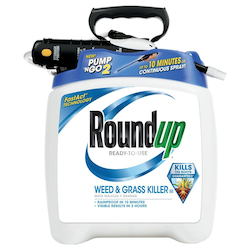RFK Jr. sounds the alarm on HSB 737, a new bill to grant pesticide manufacturers IMMUNITY for poisoning Americans
— Holden Culotta (@Holden_Culotta) December 4, 2024
Chemical companies literally argued they need immunity because lawsuits over the damages caused by their products will “put them out of business.”
RFK: “This is the… pic.twitter.com/kHK35dHLGM
HSB 737, a controversial legislative proposal, aims to grant pesticide manufacturers legal immunity from lawsuits related to their products’ health and environmental impacts.
The legislation notably benefits companies like Bayer, which produces Roundup, a glyphosate-based herbicide. Bayer, after acquiring Monsanto, has faced numerous lawsuits claiming that Roundup causes cancer. Granting immunity to such brands could potentially shield them from future litigation concerning health issues linked to their products, thereby allowing them to continue production without the legal repercussions that might otherwise encourage safer product development or more stringent safety protocols.
This move sparks debate, especially from figures like Robert F. Kennedy Jr., who has long advocated for environmental health and against corporate overreach.
The downsides of such immunity are many. Firstly, it removes a significant deterrent against negligence or the development of harmful substances. Without the threat of litigation, companies might prioritize profits over safety, potentially leading to increased pollution or health risks. Kennedy Jr. has often highlighted how corporate immunity can lead to unchecked environmental degradation, pointing out that accountability is crucial for public health.
Furthermore, this immunity could undermine consumer trust. If individuals cannot hold manufacturers accountable for damages, the incentive for companies to produce safer, more environmentally friendly products diminishes.
This legislative protection might also encourage a lack of transparency regarding the long-term effects of pesticides, leaving communities and ecosystems vulnerable. Critics argue that while businesses need protection to innovate, the balance between corporate interests and public welfare must not tilt too far.
Don’t let this happen. Don’t let them poison us.
RFK Jr. got Monsanto to pay out BILLIONS for their carcinogenic herbicide Roundup and he’s brought more lawsuits against the EPA than any other attorney, by his estimate.
— Ignorance, the root and stem of all evil (@ivan_8848) November 18, 2024
THIS is why Big Pharma, the Establishment, and their corrupt media allies are attacking him. pic.twitter.com/kD3K9XW4QH
Oh, and by the way…
And this is the head of the FDA. He was also Obama's FDA head. He did nothing under either administration, except rubber stamp Big Pharma.https://t.co/UsH6Uqioq2
— CowLivesMatter (@ProtesterLone) December 4, 2024
